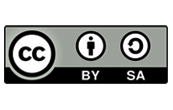Perspektif Para Stakeholder Hotel Mengenai Smart Hotel dan Perkembangannya di Indonesia
Abstract
Abstrak
Penelitian ini dilakukan untuk mengetahui sejauh mana pandangan para stakeholder hotel mengenai smart hotel dan perkembangannya di Indonesia. Narasumber pada penelitian ini berjumlah delapan orang yang merupakan karyawan hotel yang mengetahui kegiatan pemasaran yang dilakukan. Penelitian ini menggunakan metode kualitatif untuk menggali lebih dalam bagaimana pandangan para stakeholder mengenai smart hotel, yang diperdalam dengan wawancara telfon yang memiliki poin pertanyaan tentang definisi smart hotel, harapan jika smart hotel dikembangkan oleh para stakeholder, dan hambatan yang akan dihadapi. Penelitian sebelumnya sudah dilakukan di tiongkok dengan mengambil perspektif para manajer, yang hanya mencari bagaimana pandangan mengenai smart hotel namun solusi atas hambatan tidak disinggung. Hasilnya smart hotel didefinisikan sebagai hotel yang dilengkapi teknologi terkini yang memberikan manfaat bagi operasional hotel, dan tamu dalam memberikan pelayanan yang cepat dan efisien, smart hotel diharapkan dapat berkembang dengan baik di Indonesia, akan tetapi dengan beberapa catatan yang kegiatannya akan mendapatkan hambatan-hambatan yang sudah terangkum didalam peneliitian ini.
Kata Kunci : hotel, teknologi, smart hotel, stakeholders
Abstract
This research was conducted to find out the extent of hotel stakeholders' views on smart hotels and their development in Indonesia. The resource persons in this study are eight people who are hotel employees who know the marketing activities carried out. This study uses a qualitative method to dig deeper into the views of stakeholders regarding smart hotels, which are deepened by telephone interviews that have question points about the definition of smart hotels, expectations if smart hotels are developed by stakeholders, and the obstacles that will be faced. Previous research has been conducted in China by taking the perspective of managers, who only look for how to view smart hotels but the solution to the obstacles is not mentioned. As a result, smart hotels are defined as hotels equipped with the latest technology that provides benefits for hotel operations, and guests in providing fast and efficient services, smart hotels are expected to develop well in Indonesia, but with some notes that their activities will get obstacles that have been summarized in this research.
Keywords: hotel, technology, smart hotel, stakeholders
References
Beidona, S. (2017). Article information : Evaluating hotel guest technologies : Does home matter ?
Blagodir, А. L., Skabeeva, L. I., Sergeeva, Y. S., Sharonin, P. N., & Fedorov, A. G. (2021). Improving methods of state support for the tourism and hospitality industry in the context of digitalization. Laplage Em Revista, 7(Extra-C), 459–465. https://doi.org/10.24115/s2446-622020217extra-c1034p.459-465
Buhalis, D. and Amaranggana, A. (2014). Smart Tourism Destination. Information and Communiacation Technologies in Tourism, 553–564.
Buhalis, D. (2020). Technology in tourism-from information communication technologies to eTourism and smart tourism towards ambient intelligence tourism: a perspective article. Tourism Review, 75(1), 267–272. https://doi.org/10.1108/TR-06-2019-0258
Cai, W., Richter, S., & McKenna, B. (2019). Progress on technology use in tourism. Journal of Hospitality and Tourism Technology, 10(4), 651–672. https://doi.org/10.1108/JHTT-07-2018-0068
Drexler, N., & Beckman Lapré, V. (2019). For better or for worse: Shaping the hospitality industry through robotics and artificial intelligence. Research in Hospitality Management, 9(2), 117–120. https://doi.org/10.1080/22243534.2019.1689701
Giousmpasoglou, C., & Hua, T. T. (2020). The Use of Self-Service Technologies in Budget Hotels: The Case of Bournemouth. European Journal of Tourism, Hospitality and Recreation, 10(3), 251–261. https://doi.org/10.2478/ejthr-2020-0022
Hanum, F. (2020). Konsep Smart Tourism sebagai Implementasi Digitalisasi di Bidang Pariwisata. Tornare, 2(2), 14–17. https://doi.org/10.24198/tornare.v2i2.25787
Ip, C., Leung, R., & Law, R. (2011). Progress and development of information and communication technologies in hospitality. International Journal of Contemporary Hospitality Management, 23(4), 533–551. https://doi.org/10.1108/09596111111130029
Kamboj, S., & Gupta, S. (2020). Use of smart phone apps in co-creative hotel service innovation: an evidence from India. Current Issues in Tourism, 23(3), 323–344. https://doi.org/10.1080/13683500.2018.1513459
Law, R., Buhalis, D., & Cobanoglu, C. (2014). Progress on information and communication technologies in hospitality and tourism. International Journal of Contemporary Hospitality Management, 26(5), 727–750. https://doi.org/10.1108/IJCHM-08-2013-0367
Law, R., Leung, D., & Chan, I. C. C. (2020). Progression and development of information and communication technology research in hospitality and tourism: A state-of-the-art review. International Journal of Contemporary Hospitality Management, 32(2), 511–534. https://doi.org/10.1108/IJCHM-07-2018-0586
Lee, S. C., Barker, S., & Kandampully, J. (2003). Technology, service quality, and customer loyalty in hotels: Australian managerial perspectives. Managing Service Quality: An International Journal, 13(5), 423–432. https://doi.org/10.1108/09604520310495886
Leung, R. (2019). Smart hospitality: Taiwan hotel stakeholder perspectives. Tourism Review, 74(1), 50–62. https://doi.org/10.1108/TR-09-2017-0149
Leung, R. (2021). Hospitality technology progress towards intelligent buildings: a perspective article. Tourism Review, 76(1), 69–73. https://doi.org/10.1108/TR-05-2019-0173
Pai, C. K., Liu, Y., Kang, S., & Dai, A. (2020). The role of perceived smart tourism technology experience for tourist satisfaction, happiness and revisit intention. Sustainability (Switzerland), 12(16). https://doi.org/10.3390/su12166592
Petrovska, I., Safronova, O., Mital, O., Ometsynska, N., Moroz, V., Vidomenko, O., Lebedynets, I., Maistrenko, Y., Shostakovska, A., & Nosyriev, O. (2021). Improving the Organizational and Economic Support for the Development of Enterprises in the Hospitality Industry in the Use of Information and Communication Technologies. Eastern-European Journal of Enterprise Technologies, 6(13–114), 29–38. https://doi.org/10.15587/1729-4061.2021.247943
Shin, H., Perdue, R. R., & Kang, J. (2019). Front desk technology innovation in hotels: A managerial perspective. Tourism Management, 74(April), 310–318. https://doi.org/10.1016/j.tourman.2019.04.004
Tavitiyaman, P., Zhang, X., & Tsang, W. Y. (2022). How Tourists Perceive the Usefulness of Technology Adoption in Hotels: Interaction Effect of Past Experience and Education Level. Journal of China Tourism Research, 18(1), 64–87. https://doi.org/10.1080/19388160.2020.1801546
Voronova, O., Khareva, V., & Khnykina, T. (2020). Modern information technologies in the hotel business: Development trends and implementation issues. E3S Web of Conferences, 164. https://doi.org/10.1051/e3sconf/202016409017
Xiang, Z. (2018). From digitization to the age of acceleration: On information technology and tourism. Tourism Management Perspectives, 25(September), 147–150. https://doi.org/10.1016/j.tmp.2017.11.023
Xu, S., Stienmetz, J., & Ashton, M. (2020). How will service robots redefine leadership in hotel management? A Delphi approach. International Journal of Contemporary Hospitality Management, 32(6), 2217–2237. https://doi.org/10.1108/IJCHM-05-2019-0505
Xu, X. (2018). Research on the Construction and Development of Smart Hotel from the Perspective of Serving Customers. 184(Icesem), 975–978. https://doi.org/10.2991/icesem-18.2018.228
Yang, H., Song, H., Cheung, C., & Guan, J. (2021). How to enhance hotel guests’ acceptance and experience of smart hotel technology: An examination of visiting intentions. International Journal of Hospitality Management, 97(July 2020), 103000. https://doi.org/10.1016/j.ijhm.2021.103000
DOI: https://doi.org/10.17509/jtee.v11i2.77797
Refbacks
- There are currently no refbacks.
This work is licensed under a Creative Commons Attribution-ShareAlike 4.0 International License.








